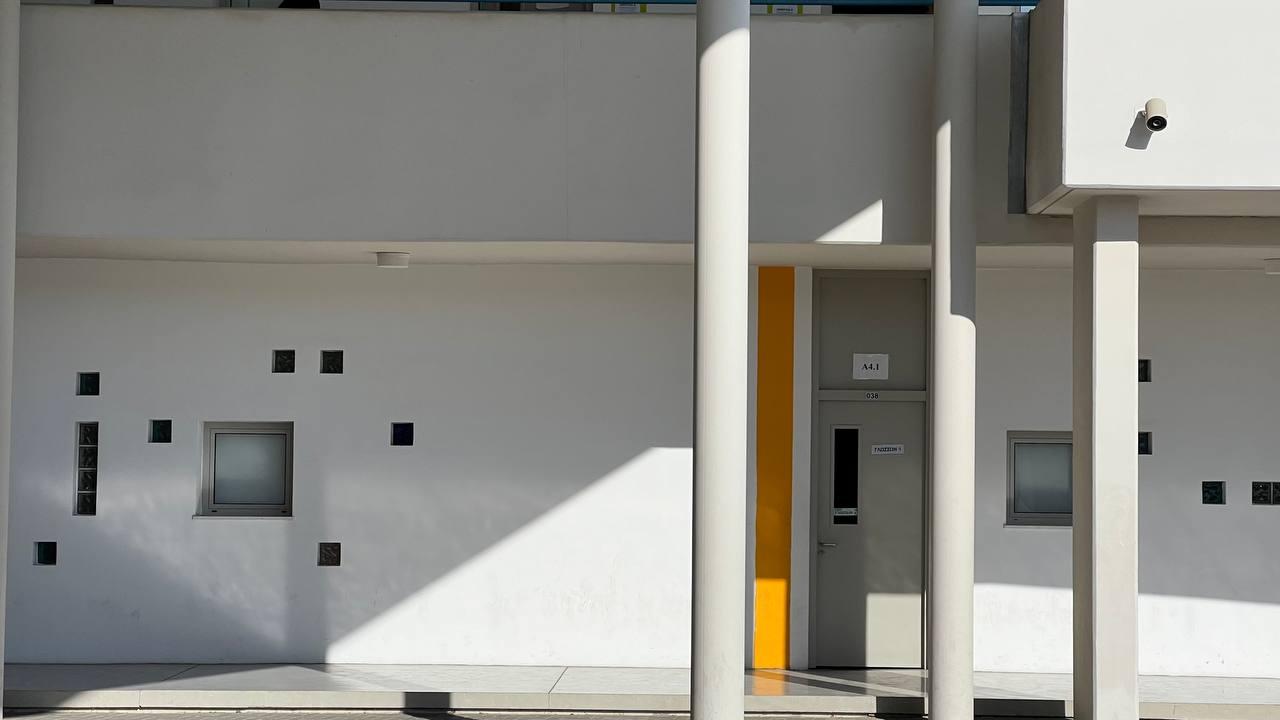Until a couple of years ago, many foreigners who emigrated to Cyprus did not even think of learning the Greek language, let alone delving deeply into the history, politics, culture or traditions of the island of Aphrodite. Rather, Cypriots were forced to adjust to the newcomers.
However, the end of 2023 turned everything upside down. The Cypriots' patience ran out. They decided to show "who is the master in the house", and right under Christmas presented foreigners with an unexpected gift in the form of amendments to the Law on obtaining citizenship by naturalization. One of the toughest innovations was the mandatory knowledge of Greek at the B1 level. Rumors that have been circulating for years have finally become a reality. The news about the necessity to pass exams to obtain the relevant certificates came as the first snow on the head, shocking everyone. The new Law on Naturalization of Highly Qualified Specialists also added fuel to the fire.
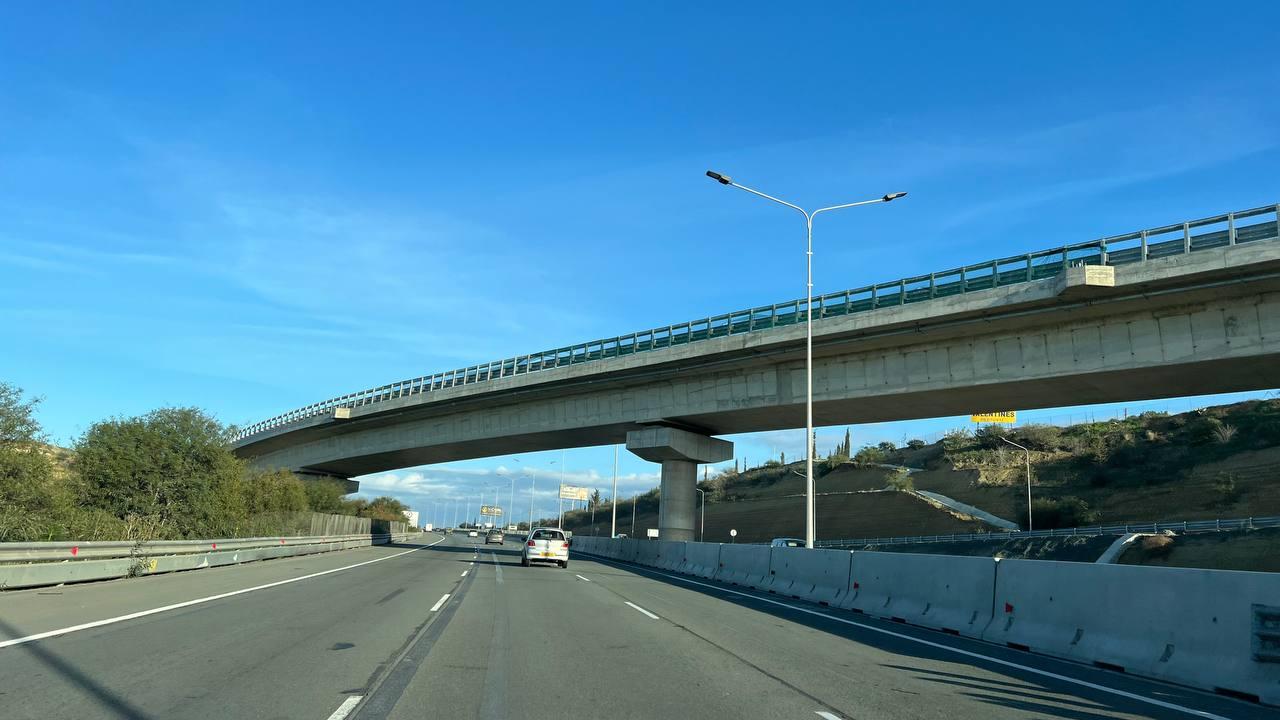
Interestingly, no one knows until the end how and from what date the new rules will be applied.
By the way, specialists of the Department of Civil Status Registration and Migration are at a complete loss. Perhaps that is why the department has temporarily suspended not only the consideration of old but also the acceptance of new documents from foreign citizens.
However the work of local and overseas tutors has noticeably increased. Having celebrated the New Year holidays, almost all my acquaintances sat down at their desks, took Greek textbooks in their hands, and began to actively chew on the granite of science. At the same time, most of them tried to delve as deeply as possible into the island realities and the Cypriot way of life in the hope of successfully passing the next exam on the knowledge of the history of Cyprus, which was scheduled for February 3. By the way, this year the interest in this test has increased several times over. About 600 foreigners applied for the test.
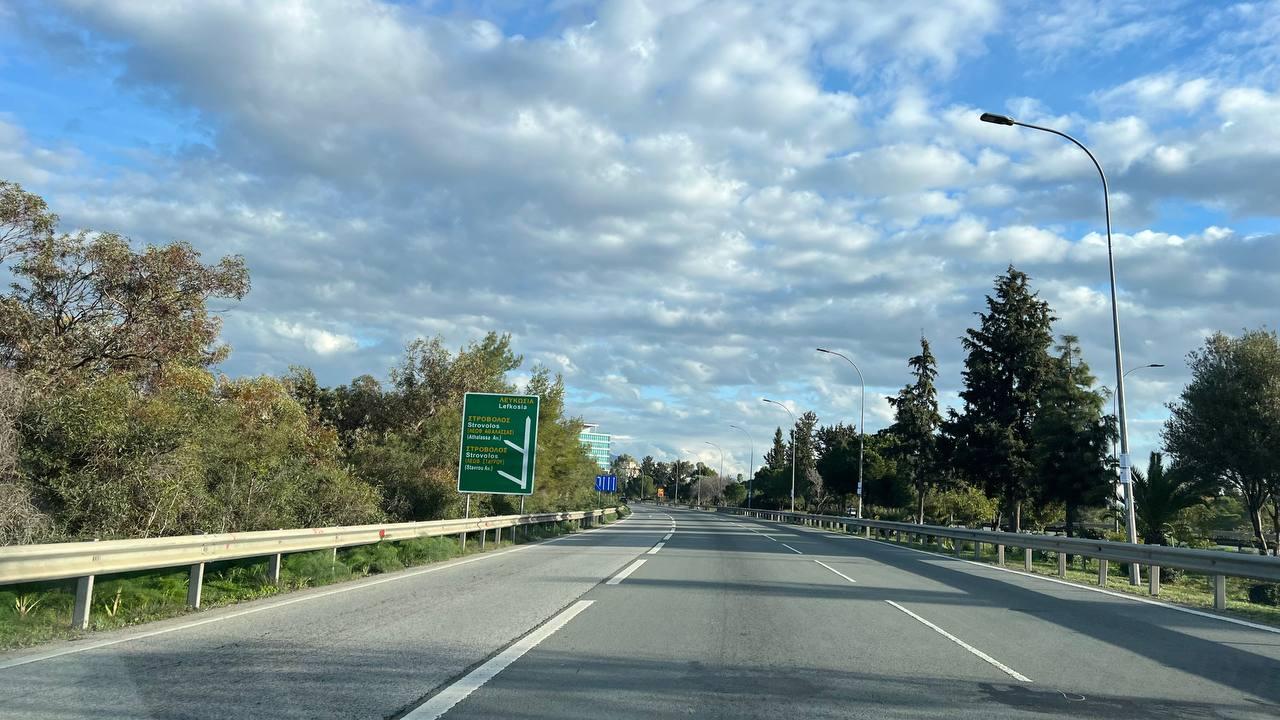
It should be mentioned that the examination of the knowledge of the history of Cyprus, and more precisely on the knowledge of the main elements of the current political and social reality of Cyprus, was first introduced in 2023 for applicants for a Long-term residence permit (LTPR).
LTPR is a residence permit, which is issued after 5 years of residence on the island with the right to work, without being tied to an employer. At that time the pass rate was almost 100%. The test itself consisted of 24 questions divided into two blocks. In the first one you had to choose the correct option from the proposed answers, and in the second one, you had to indicate whether the statement was correct or incorrect. This year the rules have changed a bit, but more about that later.
Attention! The Cypriot history exam should not be confused with the Greek language exam. They are completely different things. If these exams are passed successfully, separate certificates are issued.
As for citizenship, the necessity to pass the Cypriot history exam is still at the level of rumors. However, many foreigners have decided to be proactive and as soon as the registration opened, joined the ranks of the examiners. Especially since the certificate issued is open-ended. It will not be superfluous. Who knows what "surprises" await us tomorrow?
Having given in to general panic, I also decided to try my luck. I'll tell you step by step how it was.
When and how to sign up for the exam?
The exam on knowledge of the main elements of the modern political and social reality of Cyprus takes place twice a year: in February and July. Enrollment for the test is done exclusively through the JCC Smart portal. Registration takes an average of 10 minutes. First, you need to fill out an application form with the standard passport details, phone number and e-mail address. Then - pay 20 euros for participation. Closer to the X date, you will receive an e-mail with two forms and instructions on what to bring and how to behave at the exam. Please note that you MUST print the forms and bring them with you, otherwise, you will not be allowed to take the test.
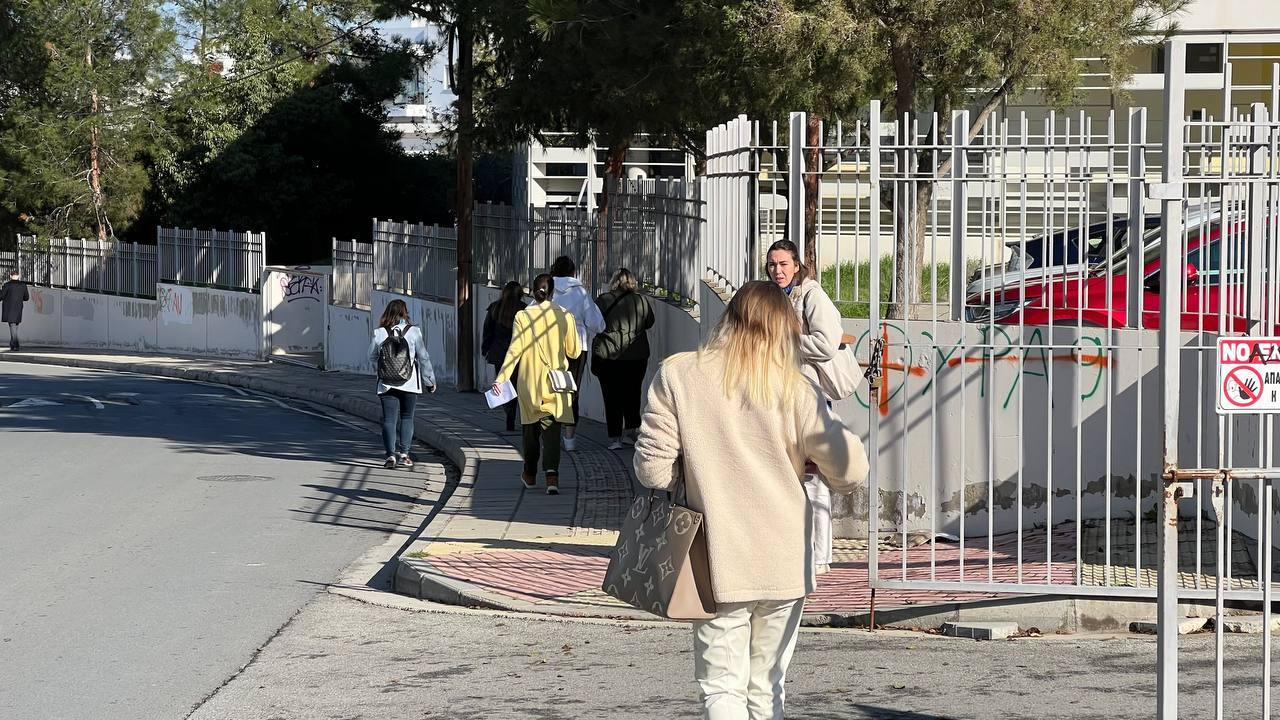
How to prepare for the exam?
This is a painful question for all foreigners. Most of them, for some reason, rush to look for tutors in the hope that they will work a miracle. Only a few can provide qualified help in preparing for the exam on the history of Cyprus, many teach online from Athens, Moscow, Minsk, or other places. The list is endless. My advice to you is not to waste your time and money - it is better to read local news every day, find thematic telegram channels, and portals with informative blogs about Cyprus, or better yet, do a detailed study of visitcyprus.com. As practice has shown, this is where more than 90% of the answers to the February test questions are located.
Where does the test take place?
The exam on the knowledge of the history of Cyprus takes place in Nicosia in public schools and lyceums. You can find out the exact address in the e-mail that is sent along with the instructions to each test participant. By the way, this year, due to the influx of willing participants, Cypriots involved three locations at once. At the same time, it is not clear what logic was used to distribute people. For example, my husband and I got to the same address for the exam, and our friends were less lucky, they were scattered to different schools, although all registered with a difference of literally 2 minutes.
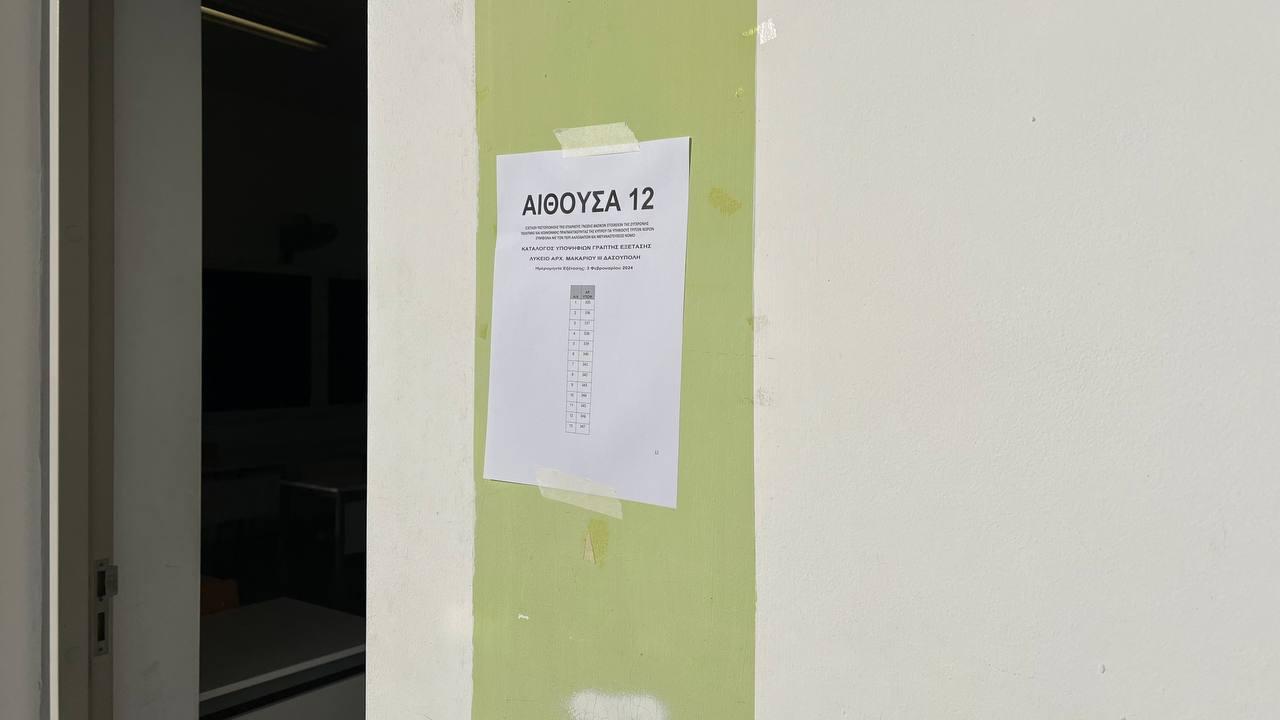
What should I have with me for the exam?
In order to be admitted to the exam you need to bring: a passport (identity document) and two printed forms, which were sent after registration on e-mail. You should also bring a blue pen. That's it, in fact, everything. It is better to come to school in advance, not necessarily an hour in advance, as it was done by the vast majority of Russian-speaking residents of Limassol. As a result, everyone sat in classes for 35-40 minutes in dead silence, waiting for the school bell.
I want to note that the organization this year was at the highest level, everything went quickly and clearly. In the school where I took the exam, all examinees were divided into small groups of 13 people. In total, I counted 14 classes, at the entrance to each of them there were lists. It was not difficult for me to find the right one. At the entrance to the class, I was met by a lovely Cypriot woman in her mid-teens. After checking my documents, she pointed to the desk where I would be taking the exam. In the end, the lady seated everyone in staggered order, apparently so that we wouldn't cheat off each other. At around 9 am, everyone who came was asked to turn off their phones and put all their extra stuff (jackets, bags, backpacks, water, etc.) on the far table, which was near the blackboard.
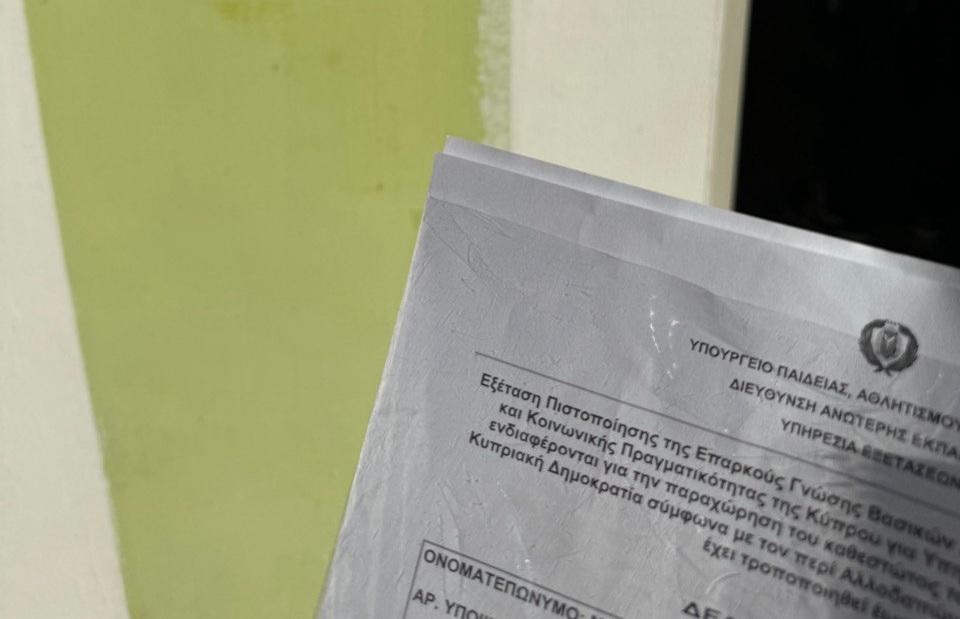
How does the exam proceed?
The last 15 minutes were the longest of my life. I couldn't wait to get my assignment and get to work. Instead, I had to listen to the instructions, which I had already read at home 5 times. At first, the Cypriot woman tried to explain everything in her own words in English, and then she started reading from a sheet of paper in Greek. By the way, according to the rules, even those comrades who are 20 minutes late from the start of the test are allowed to take the exam. This is the maximum that the most unpunctual can afford. The examiner emphasized this, repeating twice that she would have to let the latecomer in case of such a force majeure.
Another 10 minutes passed, and finally, the envelope was brought into the classroom. However, it was cut only when the clock struck exactly 9 hours and 15 minutes and the loud school bell rang. Everyone was given tasks and asked to write their last name, first name, and registration number on the main page in the upper left corner. Game on!)
I had 5 A4 sheets in my hands, stapled together. There were exactly 25 questions on them, conditionally divided into 4 categories. The first touched upon geography, the second - on politics, the third - on culture and traditions, and the fourth - on everyday life. What made me very happy and confident was that all the questions were in the format of tests. Each of them had 4 options of answers, from which it was necessary to choose one correct one. The first thing I did was to answer those items in which I was 100% sure. The second time I went over the questions I had missed so as not to waste time. Then I filled in the remaining gaps.
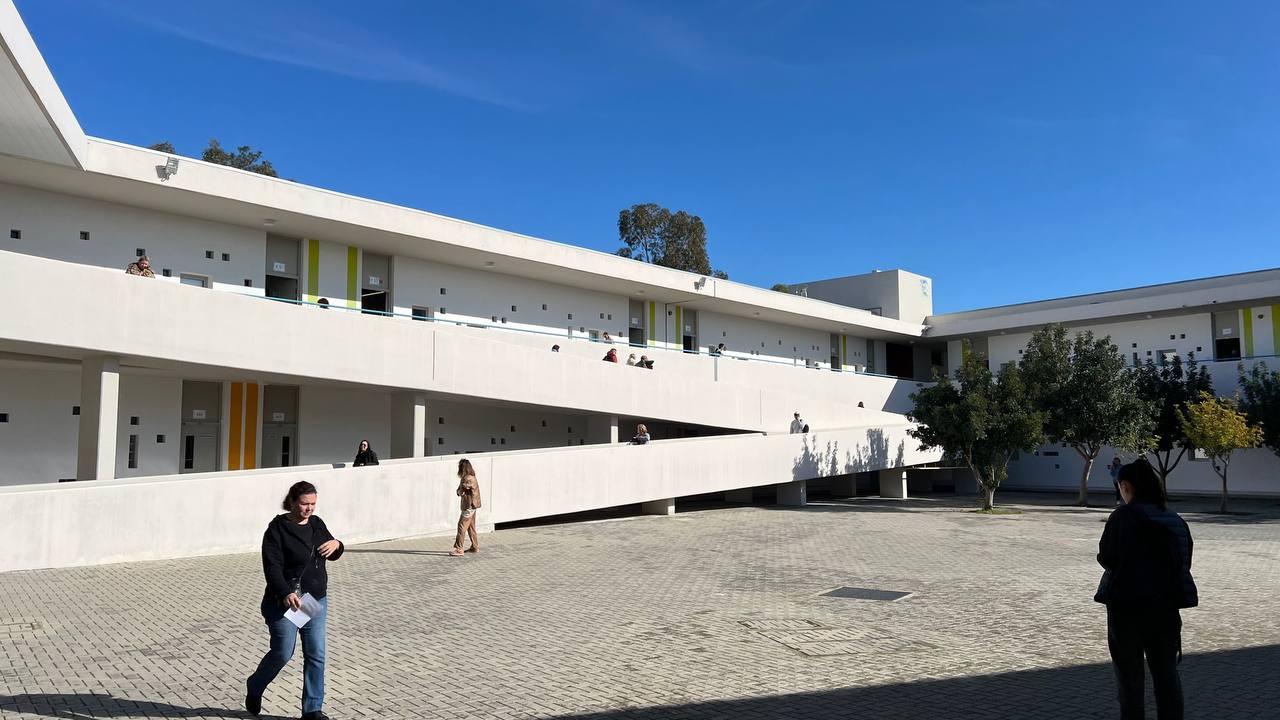
I must say that my group, surprisingly, was made up of quite strong guys. Or rather girls, because the overwhelming part of the list (10 people) consisted of women.
How else to explain the fact that after 15 minutes five of them handed in their papers and sat waiting for the "laggards"? I decided to take my time and give myself more time to think things through so that I wouldn't make any stupid mistakes that I would regret later. In the end, I was done in 25 minutes. But, I still had to wait another 5 minutes to leave the room. No one was allowed out before 9:45. According to the rules, even if you wrote the test quickly, you have to stay in the classroom for at least half an hour.
According to the terms of the exam, to get a positive result, it is enough to score more than 50%. In other words, 13 correct answers. Is this realistic? More than realistic! In general, the questions were not difficult, as it seemed to me. However, if you don't know Greek at least at A2 level, you would have to sweat a lot. Or you would have to rely on luck.
What were the questions in the February test?
When I came out of school, I met some friends with whom we actively started to write down the questions on my phone while they were still in my head. And at the same time we checked our answers, experimentally determining how many mistakes someone made, and who showed the best results. The list of questions, which we remembered by common efforts, looked like this:
- In which part of the Mediterranean Sea is Cyprus located? Correct answer is: northeastern
- What area does Agia Napa belong to? Correct answer: Ammochostos.
- Which district includes Polis Chrysochous? Correct Answer: Paphos
- Which country is closest to Cyprus? Correct Answer: Turkey
- Where is Platres located? Correct Answer: Troodos
- Which letter is closest to the occupied territory? (you had to choose from the picture) Correct answer: B (topmost)
- Which city is occupied by Turkish troops? Correct answer: Kyrenia
- How many Cypriot MPs are there in the European Parliament? Correct answer: 6
- When did Cyprus join the EU? Correct answer: May 1, 2004
- Cyprus is not a member of which of the following organizations? Correct answer: NATO
- How often is the parliament elected in Cyprus? Correct answer: every 5 years
- Who appoints the members of the Parliament of Cyprus? Correct answer: the President
- What is the name of the Foreign Minister of Cyprus? Correct answer: Konstantinos Kombos
- What are the official languages in Cyprus? Correct answer: Greek and Turkish
- What is Lefkara famous for? The correct answer: lace
- Which of the following is not a product of Cyprus? Correct answer: feta.
- What do Cypriots celebrate on Easter? Correct answer: the resurrection of Christ
- Which city hosts a wine festival? Correct answer: Limassol
- A tourist cannot get to Limassol from Nicosia by what? Correct answer: by train
- What is the amount of VAT on milk, eggs, etc. in Cyprus? Correct answer: 0%
- The contact number for the emergency services and police in Cyprus? Correct answer: 112
- What is the telephone area code for Cyprus? Correct answer: +357
- What is the cost of a visit to a private doctor in GESI? Correct answer: 0 euros
- What is the maximum speed allowed on a highway? Correct answer: 100 km per hour
- When is the Independence Day of Cyprus celebrated? Correct answer: October 1
Do you agree that not everything is as critical as some Greek connoisseurs in telegram chats have outlined it? I have to say, I thought it would be much more complicated. It turned out that the devil is not so terrible as it is may seem.
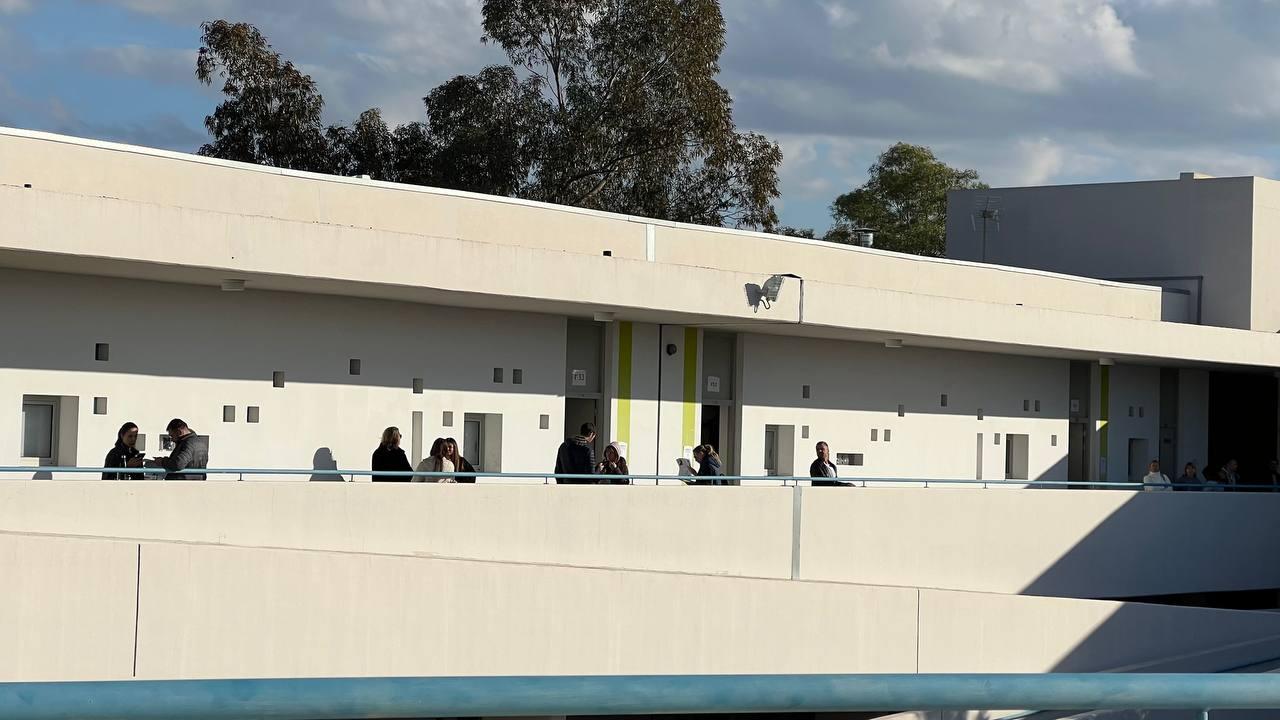
Read also:

